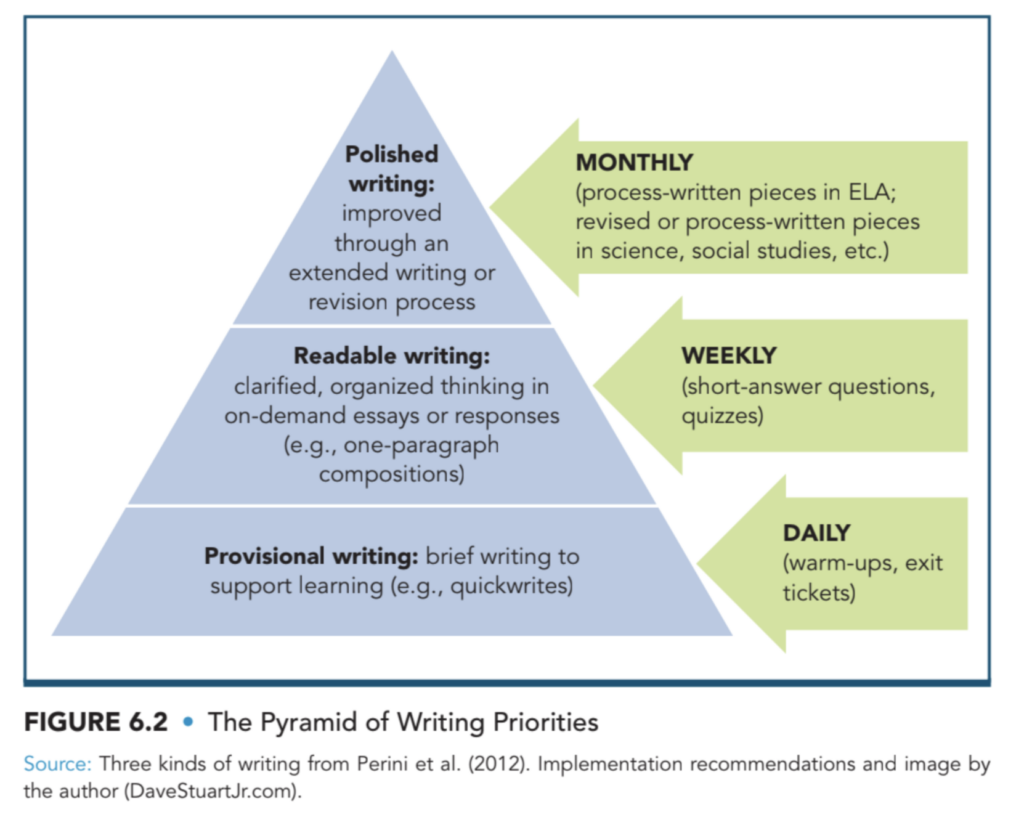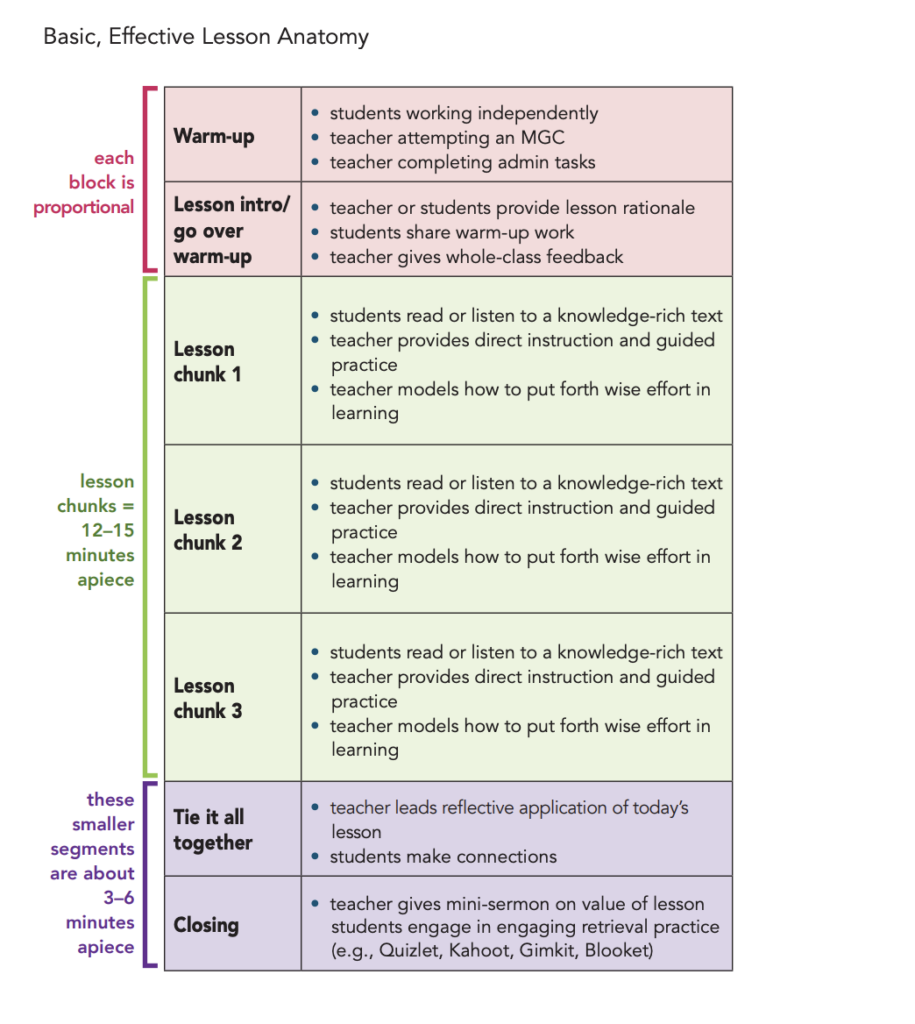This year, get your students writing more. It'll make your job easier, and it'll make their minds and hearts stronger.
When you're thinking about where and how to get them writing, use this pyramid to help you prioritize.

(That's from p. 172 of These 6 Things: How to Focus Your Teaching on What Matters Most.)
Start at the bottom. If you've never had your students engage in daily writing, make that your goal. This is called provisional writing — writing that exists for today, for the purpose of making learning happen.
Provisional writing works best in my classroom when I do it:
- At the start of class as a five minute warm-up.
- At the end of class as a five minute closer.
- Sometimes, in the middle of the class in between blocks of learning.
To help you see a bit better what I mean by those chunks above, here's a diagram from my latest book.

(Graphic is from p. 86 of The Will to Learn: Cultivating Student Motivation Without Losing Your Own.)
The great thing regarding provisional writing is that you can do with it what you want. Ask students to:
- Review previous learning.
- Anticipate learning to come.
- Reflect on their progress.
- Make connections between learning and life.
- Share about themselves.
In short, you can aim this kind of writing at any objective you have.
When students engage in provisional writing each day, you as a teacher gain great benefits:
- As the act of writing becomes normalized in your classroom, student complaining diminishes. It becomes just “what we do” in here, not some anomaly to be protested.
- As students are writing, you have a quiet moment to do a quick administrative task (e.g., quickly take attendance) and then (much more importantly) take a walk around the classroom to see how students are doing. At first, you're mostly seeing if they're writing. But eventually, once writing becomes normalized, you're looking over their shoulder to see what they are writing, whether they are “getting it,” whether each individual is pushing themselves to put thinking on the page
And of course, your students gain these benefits, too:
- They habituate writing in your class.
- They become much clearer themselves on what they do and don't know.
- They overcome internal blocks to writing (e.g., “I can't write”) because you've given them the opportunity and expectation and guidance and encouragement to write every single day.
Finally, a few logistical bits:
- Because it's provisional, there's no need to grade this. Grading it sends the wrong message, that this writing is something they are doing for you. But what you want to communicate in word and deed is that writing is always first for the writer. The writer who gains power, clarity, wisdom, insight, and strength. (If you're thinking, “My students won't do the writing if I don't grade it,” that's a problem my latest book addresses.)
- Because it's provisional, keep the medium simple. In my class, we're all about the spiral notebook. It's the only tool you need, besides a writing utensil. Once in a while, I'll have students submit their provisional writing via Canvas (we've been 1:1 since COVID) so that I can see them all in real time and we can do a bit of revision work. But the rule of thumb is keep it simple.
But Dave, does this make sense for all classes?
I think it can, but let me prove that. In my next article (linked here), I treat what provisional writing can look like in Phys Ed, Band, Computer Science, and Biology. (If you have any other requests, let me know in the comments.)
Best,
DSJR
Kimberly says
Yes! Normalize daily writing! I get so many complaints at first, “Ugh, this isn’t ELA!” But they soon learn that we read, write, think, and speak every single class. My goal is that they learn how to be historians (thinking, questioning, researching, writing, presenting) not just memorize facts.
Wes says
Love the explanation, graphics, and rationale for provisional writing in all subjects Dave! Writing helps us all process and consolidate our thinking. I’m looking forward to the examples in the next article.
Richard Torres says
During Covid I stopped using notebooks and haven’t gone back to them since, but I really miss the structure it provided and how much it really helped kids get grounded to start class. Probably going back to them next year.